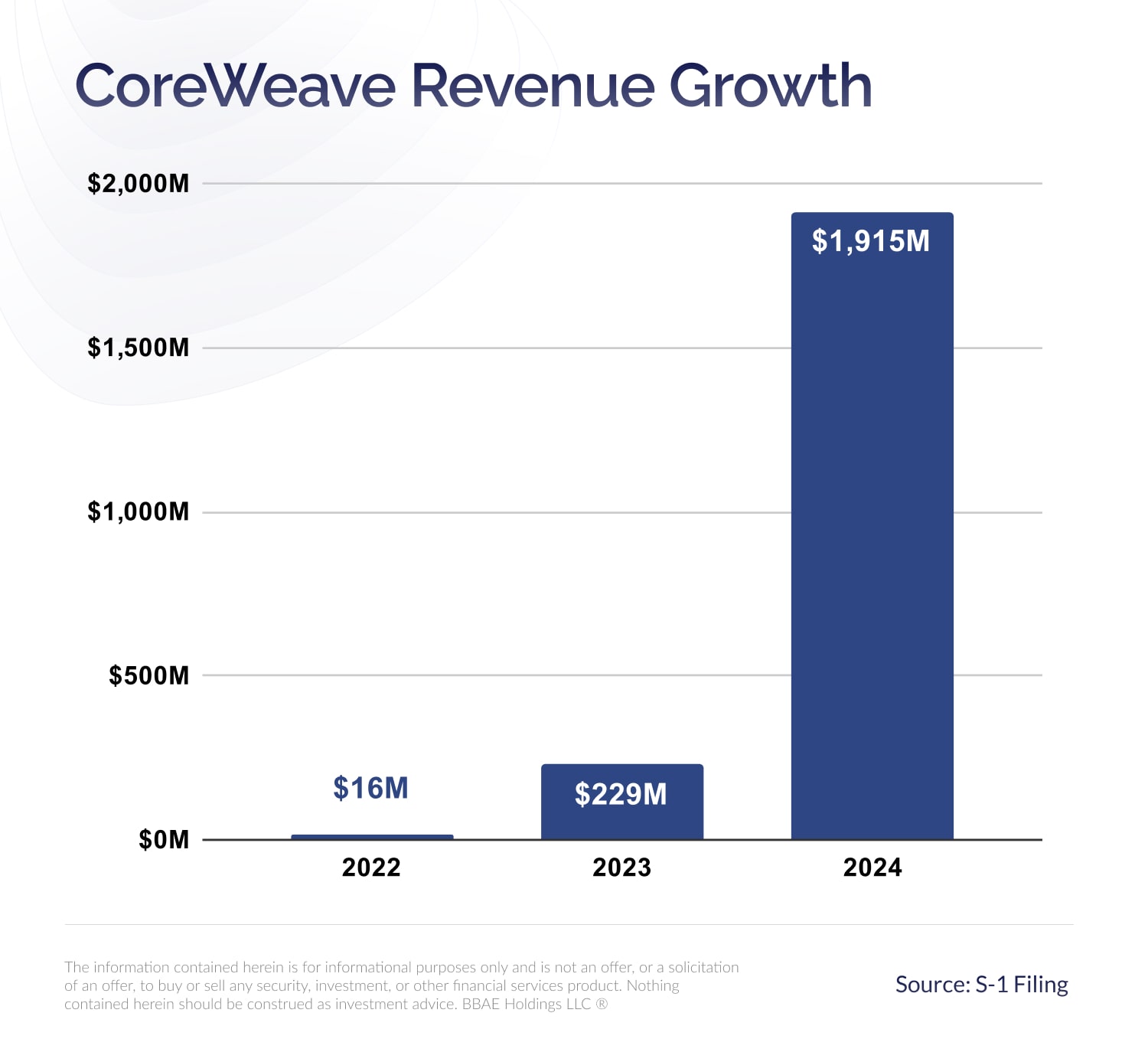OpenAI Facing FTC Probe: Examining The Potential Consequences

Table of Contents
The FTC's Focus: Data Privacy and Algorithmic Bias
The Federal Trade Commission's investigation into OpenAI likely centers on two key areas: data privacy and algorithmic bias. These are crucial concerns given the immense scale of data OpenAI utilizes and the potential societal impact of its AI models.
Concerns Regarding Data Collection and Usage
The FTC is likely investigating OpenAI's data collection practices, particularly concerning the vast amounts of data used to train its AI models. This includes text and code scraped from the internet, which raises concerns about copyright infringement and potential misuse of personal data.
- Lack of Transparency in Data Sourcing: The opacity surrounding the origin and nature of OpenAI's training data is a major concern. Understanding the source and processing of this data is critical for assessing potential privacy violations.
- Potential for Misuse of Personal Data: The sheer volume of data used in training raises concerns about the potential for the unintentional inclusion and misuse of personally identifiable information (PII). This is especially important given the sensitive nature of some data found online.
- Inadequate Data Minimization Strategies: Concerns exist regarding whether OpenAI employs sufficient strategies to minimize the amount of data collected and used, a key principle in data protection regulations. Overly broad data collection practices are a potential area of FTC scrutiny. This relates closely to the broader issue of responsible AI development and the ethical implications of data usage.
Algorithmic Bias and Fairness
Another critical area of the FTC's focus is algorithmic bias. OpenAI's models, while impressive, are trained on existing data, which may reflect and amplify societal biases. This can lead to unfair or discriminatory outcomes.
- Discrimination in Outputs: AI models can perpetuate existing biases, resulting in outputs that discriminate against certain groups or individuals. This is a significant concern for fairness and equity in AI applications.
- Lack of Fairness Audits: The FTC is likely assessing whether OpenAI conducts adequate fairness audits of its models to identify and mitigate potential biases before deployment. Regular and rigorous audits are crucial for responsible AI development.
- Insufficient Mitigation Strategies for Bias: The investigation will likely examine whether OpenAI has implemented sufficient strategies to mitigate bias in its algorithms and training data. This includes exploring methods for data cleaning, model adjustments, and ongoing monitoring.
Potential Consequences for OpenAI
The implications of the OpenAI FTC probe are far-reaching and could significantly impact the company's future.
Financial Penalties and Legal Sanctions
The FTC possesses the authority to impose significant financial penalties on OpenAI for any violations of privacy laws or unfair trade practices.
- Potential for Multi-Million Dollar Fines: Depending on the severity of the violations, OpenAI could face substantial fines. The scale of the potential penalties underscores the seriousness of the FTC's concerns.
- Restrictions on Data Usage: The FTC might impose restrictions on OpenAI's data collection and usage practices, potentially impacting its ability to train and improve its AI models.
- Mandatory Audits: The FTC could mandate regular independent audits of OpenAI's data handling procedures and AI models to ensure compliance with regulations.
Reputational Damage and Loss of Trust
Negative publicity surrounding the FTC probe could severely damage OpenAI's reputation and erode public trust in its technology.
- Negative Media Coverage: Negative news reports can significantly impact public perception and consumer confidence. This can lead to decreased user adoption of OpenAI's products.
- Loss of Market Share: Reputational damage could cause OpenAI to lose market share to competitors who are perceived as more responsible and ethical.
- Difficulty in Attracting Talent: Top AI researchers and engineers may be hesitant to work for a company facing significant regulatory scrutiny.
Impact on AI Development and Innovation
The outcome of the FTC probe could significantly influence the future direction of AI development.
- Increased Regulatory Compliance Costs: Increased regulatory scrutiny will lead to higher compliance costs for OpenAI and other AI companies.
- Stricter Data Governance Frameworks: The probe could result in the creation of stricter data governance frameworks, potentially slowing down the development of certain AI applications.
- Potentially Hindering Rapid AI Advancements: Overly stringent regulations could stifle innovation by making it more difficult and expensive to develop and deploy new AI technologies.
Broader Implications for the AI Industry
The OpenAI FTC probe extends beyond OpenAI, impacting the entire AI industry.
Setting a Precedent for Future Regulation
The OpenAI case could set a legal precedent for regulating AI companies globally, influencing how other AI developers approach data privacy, algorithmic bias, and other ethical concerns.
- Impact on Other Large Language Models: The outcome of the OpenAI FTC probe will influence how regulators approach other large language models (LLMs) and AI systems.
- Influence on Future AI Legislation: The investigation could shape the development of future AI legislation, impacting the entire sector's regulatory landscape.
- Increased Focus on Responsible AI Development: The probe highlights the urgent need for the AI industry to prioritize responsible AI development practices.
Increased Scrutiny and Accountability
The OpenAI FTC probe underscores the growing need for increased accountability and transparency in the AI industry.
- Increased Calls for Ethical Guidelines: The probe is likely to increase calls for the development and implementation of ethical guidelines for AI development and deployment.
- Third-Party Audits of AI Systems: Increased scrutiny will likely lead to a greater demand for third-party audits of AI systems to verify their fairness and safety.
- Strengthened Data Protection Measures: The investigation is expected to stimulate further strengthening of data protection measures across the AI industry.
Conclusion
The OpenAI FTC probe is a significant event with far-reaching consequences for OpenAI and the broader AI industry. The potential penalties, reputational damage, and the establishment of legal precedents underscore the critical need for responsible AI development and ethical data practices. Understanding the potential outcomes of this investigation is vital for all stakeholders involved. Staying informed about the progress of the OpenAI FTC probe and its implications is crucial for navigating this evolving technological landscape. Keep up-to-date on the latest developments regarding the OpenAI FTC probe to stay ahead of the curve in this rapidly evolving field.

Featured Posts
-
 The Goldbergs Cast Where Are They Now
May 22, 2025
The Goldbergs Cast Where Are They Now
May 22, 2025 -
 Abn Amro Under Investigation Bonus Practices Scrutinized
May 22, 2025
Abn Amro Under Investigation Bonus Practices Scrutinized
May 22, 2025 -
 Update Two Cows Loose In Lancaster County Park
May 22, 2025
Update Two Cows Loose In Lancaster County Park
May 22, 2025 -
 Investment Analysis Deciphering Core Weave Inc Crwv S Recent Stock Growth
May 22, 2025
Investment Analysis Deciphering Core Weave Inc Crwv S Recent Stock Growth
May 22, 2025 -
 Daftar Lengkap Juara Premier League Sepuluh Tahun Terakhir
May 22, 2025
Daftar Lengkap Juara Premier League Sepuluh Tahun Terakhir
May 22, 2025
Latest Posts
-
 Israeli Embassy Confirms Identities Of Couple Killed In Dc Shooting
May 22, 2025
Israeli Embassy Confirms Identities Of Couple Killed In Dc Shooting
May 22, 2025 -
 Couple Slain In Dc Terror Attack Identified
May 22, 2025
Couple Slain In Dc Terror Attack Identified
May 22, 2025 -
 Senat S Sh A Preduprezhdaet Rossiyu O Novykh Sanktsiyakh
May 22, 2025
Senat S Sh A Preduprezhdaet Rossiyu O Novykh Sanktsiyakh
May 22, 2025 -
 Otvet Na Deystviya Rossii Senat S Sh A Rassmatrivaet Rasshirenie Sanktsiy
May 22, 2025
Otvet Na Deystviya Rossii Senat S Sh A Rassmatrivaet Rasshirenie Sanktsiy
May 22, 2025 -
 Sarah Milgrim A Life Cut Short Remembering The Jewish American Victim Of The Dc Shooting
May 22, 2025
Sarah Milgrim A Life Cut Short Remembering The Jewish American Victim Of The Dc Shooting
May 22, 2025
